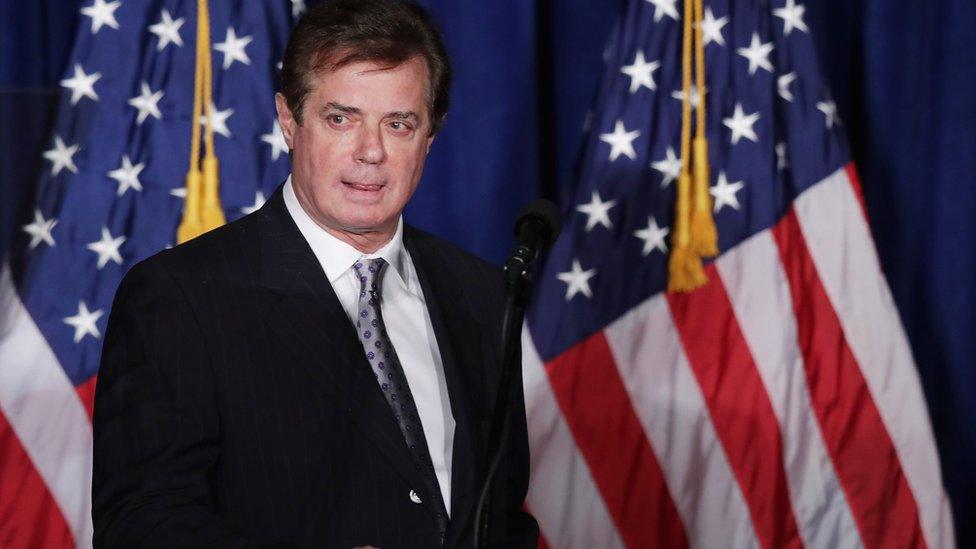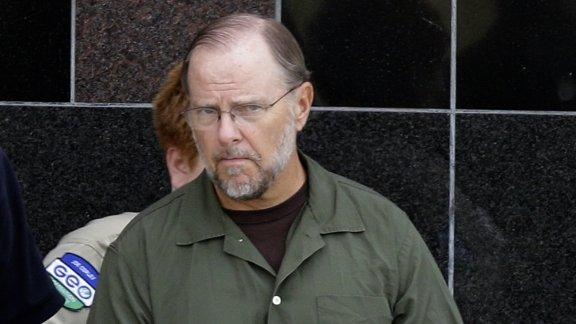What is 'conspiracy against the United States'?
- Published

Section 371 has been used in the indictment against Paul Manafort
Among the first charges laid in the FBI investigation into alleged collusion between the Trump campaign and Moscow, one grabbed the attention.
It couldn't sound more dramatic.
The first allegation against Paul Manafort and Rick Gates is "conspiracy against the United States"., external
But what does it mean?
The detail is spelled out in the US Code of Laws - Title 18, Chapter 19, Section 371., external
What does the law say?
Firstly, you cannot be charged with conspiracy alone. The law is used against "two or more people" - in this case, Mr Manafort and Mr Gates.
Secondly, the law is broad. It can be used against a group who "commit any offense against the United States, or to defraud the United States, or any agency thereof in any manner or for any purpose".
In a 1924 case, Hammerschmidt v. United States,, external Chief Justice William Taft (who was US President from from 1909 to 1913) defined "defraud".
"To conspire to defraud the United States means primarily to cheat the Government out of property or money," he said.
"But it also means to interfere with or obstruct one of its lawful governmental functions by deceit, craft or trickery, or at least by means that are dishonest."
What is the punishment?
A maximum of five years in prison. "If found guilty, each shall be fined under this title or imprisoned not more than five years, or both," the law says.
The maximum fine is $250,000 (or $500,000 for organisations).
But - if found guilty of other offences - longer sentences can apply.
When has the law been used before?
The broad nature of the law means it has been used against a wide range of people.
In 2005, computer hacker Jeanson James Ancheta, external was indicted under section 371 for using "botnets". He pleaded guilty in 2006 and was sentenced to five years in prison.
Section 371 was also used against Jeff Skilling, the former chief executive of energy firm Enron. He was jailed in 2006 for 24 years, which was reduced on appeal to 14 years.
- Published21 June 2013
